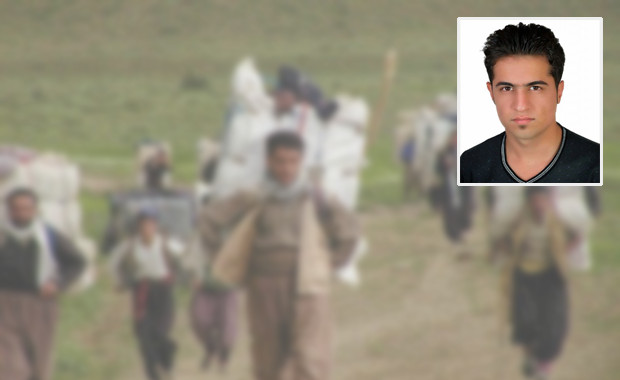The forces of the Islamic Republic of Iran in the Eastern region of Kurdistan (Rojhelat) are dealing with the residents and their acts in the area like they are colonizing a country. Creating terror and fear especially in the border areas is in their agenda. Again two other Kurdish Kolbers1 were killed by those forces in Serdesht and Nosûde (Nowsud).
According to the Firat news agency, the border security forces killed a Kurdish citizen for excuse of border transactions in Khamir village in Sardasht. He named Zanyar Kheder Agha who was the head of a family and that was his job to feed his family.
What is more, Mukrian News Agency reported that at two o’clock in the morning on the 8th of Friday of November, a young man at about the age of twenty two years old who was called by the name of Ehsan Peyam, was killed in Nosûde city by the Iranian security forces. According to the report, he was killed by the result of a direct shooting and another citizen who was named Kawan Heyderi was severely wounded in the hand, he was sent to the Kermashan Taleghani Hospital.
The Iranian state terror in the border areas is targeted defenceless civilians that so many were killed and injured each year. However, it has got a little attention by interior and international humans rights organizations. The Iranian media does not reflect these disasters of killing innocent people who make a living by trading in the border which is the only way to feed their family. The silence of media in Iran about the massacre, gives more opportunity to the Islamic Republic of Iran to continue the massacre of Kurds freely.
The Iranian Revolutionary Guards and its associated forces have the largest share in smuggling especially after the international sanctions on Iran. However, they attempt to pass the message to Kurds that the only way to prolong the life is turning to the Islamic Republic of Iran by daily killing of innocent Kurdish people.
By hanging and executing the Kurdish political prisoners and innocent villagers, they never gained success for the Islamic Republic of Iran in the Eastern region of Kurdistan. Meanwhile, the authoritarian regimes are never wanted by Kurds.
Moreover, there is no official organization in Iran at the moment to take responsibility and respond the crimes committed by the Iranian government forces against people, especially the Kurds in Iran. However, political and human rights activists inside and outside Iran, have collected the documents these past years. It is similar to what is seen in other authoritarian countries which one day the Islamic Republic of Iran has to respond to the court for their blood shed.
This hard life for thousands of Kurds owes in part to lack of investment by the government in the Kurdish areas, which some argue is politically motivated.
“As economic problems intensify due to international economic sanctions by the Western countries and the incompetence of the government … other security and political issues have turned Kurdistan into a place for political disputes and this is one of the reasons why the government ignores the development of the region, and therefore people have been forgotten and resort to the dangerous job of kulbari to live,”
In his recent report to the UN General Assembly, UN Special Rapporteur on Iran Ahmed Shaheed highlighted the “indiscriminate killings of kulbaran in violation of the domestic laws and international obligations of Iran.”
Articles 57, 58 refer to the killings of Kulbaran (border couriers) states:
“Indiscriminate killings of kulbaran (border couriers), in violation of the domestic laws and international obligations of the Islamic Republic of Iran, continue to be reported. Human rights organizations report that at least 70 border couriers were killed and 68 wounded by government forces between March 2011 and April 2012. These reportedly unarmed couriers from the Kurdish-dominated provinces of Kermanshah, Kurdistan and West Azerbaijan appear to engage in smuggling such items as tea and tobacco because of inadequate employment opportunities”.
“An individual interviewed for the present report mentioned that government forces often begin shooting immediately after issuing calls for individuals to halt movement. Under Iranian law, lethal force may be used only as a last resort, and in this case can be used only after ample warning and non-lethal attempts to apprehend unauthorized migrants have been explored, including warning shots and shots to immobilize individuals. Another source reported that Pourmand Madhatniya was killed and three others were wounded by the Deputy Border Commander of Nosood in March 2011 outside a border control station in Kermanshah. The source reported that Mr. Madhatniya had been waiting outside of the border control station and had been indiscriminately fired upon by the guard during a scuffle over confiscated goods”.
1. Kolber: people who carry goods across the border on their back, back carriers
Source: Firat News Agency
Modified: Rojhelat.info
